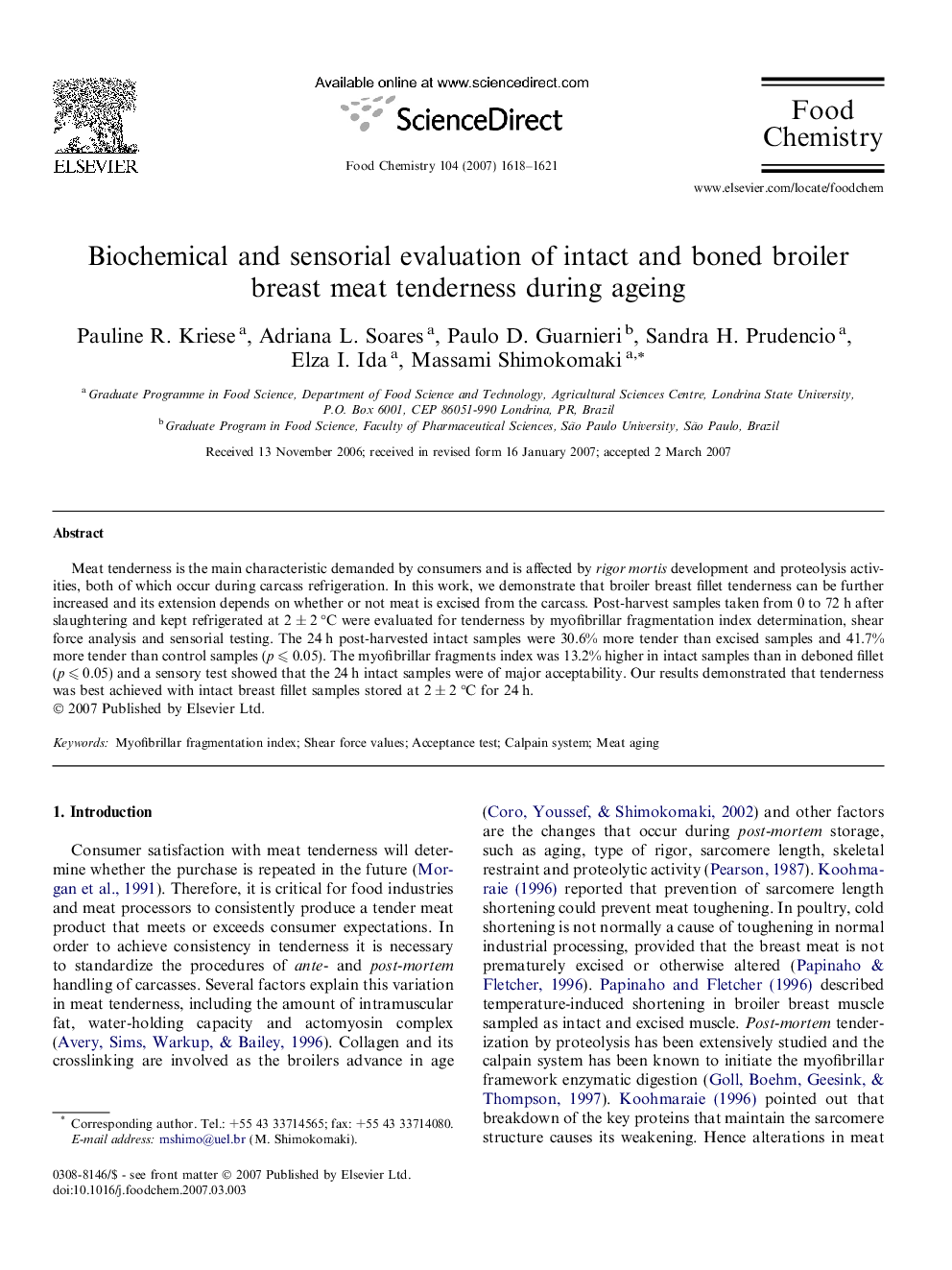| Article ID | Journal | Published Year | Pages | File Type |
|---|---|---|---|---|
| 1187526 | Food Chemistry | 2007 | 4 Pages |
Meat tenderness is the main characteristic demanded by consumers and is affected by rigor mortis development and proteolysis activities, both of which occur during carcass refrigeration. In this work, we demonstrate that broiler breast fillet tenderness can be further increased and its extension depends on whether or not meat is excised from the carcass. Post-harvest samples taken from 0 to 72 h after slaughtering and kept refrigerated at 2 ± 2 °C were evaluated for tenderness by myofibrillar fragmentation index determination, shear force analysis and sensorial testing. The 24 h post-harvested intact samples were 30.6% more tender than excised samples and 41.7% more tender than control samples (p ⩽ 0.05). The myofibrillar fragments index was 13.2% higher in intact samples than in deboned fillet (p ⩽ 0.05) and a sensory test showed that the 24 h intact samples were of major acceptability. Our results demonstrated that tenderness was best achieved with intact breast fillet samples stored at 2 ± 2 °C for 24 h.
